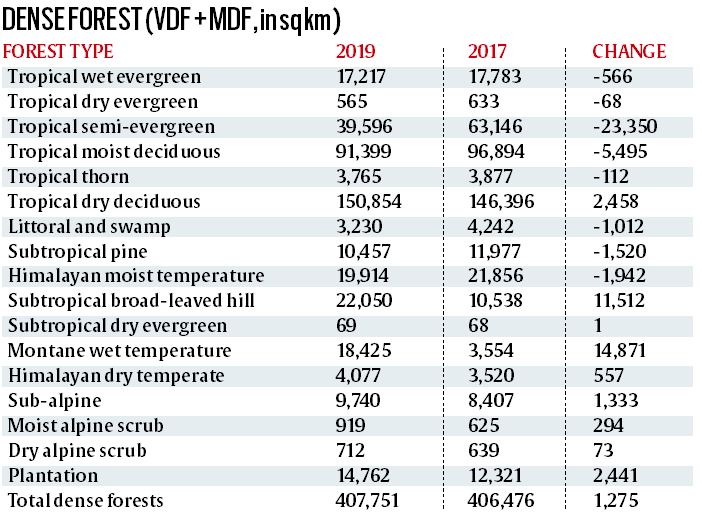- Ranklist: CLICK HERE
- Discussion Videos: CLICK HERE
- Cut Off: 100-105
2) GS Simulator #2
- Ranklist: CLICK HERE
- Discussion Videos: CLICK HERE
- Cut Off: 90-95
3) GS Simulator #3
- Ranklist: CLICK HERE
- Discussion Videos: CLICK HERE
- Cut Off: 87-90
4) GS Simulator #4
- Ranklist: CLICK HERE
- Discussion Videos: CLICK HERE
- Cut Off [ Updated ] : 95
5) GS Simulator #5
- Ranklist: CLICK HERE
- Discussion Videos: CLICK HERE
- Cut Off: 105
6) GS Simulator #6
- Ranklist: CLICK HERE
- Discussion Videos: CLICK HERE
- Cut Off: 98-102
7) GS Simulator #7
- Ranklist: CLICK HERE
- Discussion Videos: CLICK HERE
- Cut Off: 105-108
- Corrigendum (Q.47)
8) GS Simulator #8
- Ranklist: CLICK HERE
- Discussion Videos: CLICK HERE
- Cut Off: 98-102
- Corrigendum
9) GS Simulator #9
- Rank: We have provided the rank on the portal.
- Discussion Videos: Uploaded on the portal
- Cut Off: 105-110
10) GS Simulator #10
- Rank: We have provided the rank on the portal.
- Discussion Videos: It will be uploaded by Wednesday
- Cut Off: 116-120
11) GS Simulator #11
- Rank: We have provided the rank on the portal.
- Discussion Videos: It will be uploaded by Wednesday
- Cut Off: 100-105
12) GS Simulator #12
- Rank: We have provided the rank on the portal.
- Discussion Videos: It will be uploaded by Wednesday
- Cut Off: 105-110
With reference to the Police Commissionerate system in India, consider the following statements:
1. It provides for a unified command structure with the Police Commissioner as sole head of police force within the specified area.
2. It provides for separation of power between District Magistrate and Police Commissioner over police matters.
Which of the statements given above is/are correct?
Explanation
Option (a) - 1 only is the correct answer.
Under the 7th Schedule of the Constitution, 'Police' is under the State list, meaning individual states typically legislate and exercise control over this subject. At the metropolitan level, many states have replaced the dual system with the commissionerate system, as it is supposed to allow for faster decision-making to solve complex urban-centric issues.
Statement 1 is correct. In the commissionerate system, the Commissioner of Police (CP) is the head of a unified police command structure, is responsible for the force in the city or the specified area, and is accountable to the state government. The office also has magisterial powers, including those related to regulation, control, and licensing.
Statement 2 is incorrect. Under the traditional system, the overall in-charge of a district or region was the district collector; the SP reported to him. The powers of the executive magistrate, such as issuing orders for preventive arrests or imposition of Section 144 CrPC, were vested in the district collector. This was called the dual system of police administration.
Under the commissionerate system, the commissioner does not report to the DM. The Commissioner of Police (CP) is entrusted with the powers of the executive magistrate and there is a clear separation of powers between District Magistrate and Police Commissioner.
option C???
Simulator 8
Q11, Q48, Q50, Q53, Q57, Q91
The answer doesn't match the explanation.
Can someone please help with it ?
Simulator 8
Q11, Q48, Q50, Q53, Q57, Q91
The answer doesn't match the explanation.
Can someone please help with it ?
Q 11. The answer needs to be Narsimhavarman 1st. Corrigendum will be put for this one.
Q48. The term of RS is provided under RPA 1951 and not in the Constitution. Hence the 2nd statement is wrong. Statement 1 and 3 are right as per provisions of RPA 1951. Allocation os seats are made as per provision of 4th schedule but RPA 1950 puts a total number of seats allocated to states in the 4th Schedule. The open ballot system is provided in the RS election in order to prevent defection.
Q50. The question should have asked for an incorrect statement rather than the correct one. Statement (a) is an incorrect one. NRC contains only demographic details and not biometric one whereas NPR contains both demographic and biometric information. The corrigendum will be put for this one.
Q53. The dual system provides for separation of power between DM and Police Commissioner on Police matters. In the Police Commissionerate system, there is no such separation. In it, the Commissioner of Police has total authority over police matters in this area. In short Commissionarate system provides for unified command over police matters to the Commissioner of Police. Hence 2nd Statement is wrong.
Q57. The answer should be (c). Its a misprint from our side. Bothe statements here are true as explained.
Q91. Can you please tell the precise doubt of yours?
With reference to the Police Commissionerate system in India, consider the following statements:
1. It provides for a unified command structure with the Police Commissioner as sole head of police force within the specified area.
2. It provides for separation of power between District Magistrate and Police Commissioner over police matters.
Which of the statements given above is/are correct?
Explanation
Option (a) - 1 only is the correct answer.
Under the 7th Schedule of the Constitution, 'Police' is under the State list, meaning individual states typically legislate and exercise control over this subject. At the metropolitan level, many states have replaced the dual system with the commissionerate system, as it is supposed to allow for faster decision-making to solve complex urban-centric issues.
Statement 1 is correct. In the commissionerate system, the Commissioner of Police (CP) is the head of a unified police command structure, is responsible for the force in the city or the specified area, and is accountable to the state government. The office also has magisterial powers, including those related to regulation, control, and licensing.
Statement 2 is incorrect. Under the traditional system, the overall in-charge of a district or region was the district collector; the SP reported to him. The powers of the executive magistrate, such as issuing orders for preventive arrests or imposition of Section 144 CrPC, were vested in the district collector. This was called the dual system of police administration.
Under the commissionerate system, the commissioner does not report to the DM. The Commissioner of Police (CP) is entrusted with the powers of the executive magistrate and there is a clear separation of powers between District Magistrate and Police Commissioner.
option C???
The dual system provides for separation of power between DM and Police Commissioner on Police matters. In the Police Commissionerate system, there is no such separation. In it, the Commissioner of Police has total authority over police matters in this area. In short Commissionarate system provides for unified command over police matters to the Commissioner of Police. Hence 2nd Statement is wrong
Quantum computing relies on individual bits to store and process information as binary 0 and 1 states.
This is incorrect.It doesn't process information as binary states.
With reference to Biofortification of crop, consider the following statements:
1. It aims to increase nutrient levels in crops during plant growth rather than through manual means during processing of the crops.
2. It includes iron-biofortification of wheat, rice and maize
3. It is recognized as a nutrition-sensitive-agriculture intervention that can reduce vitamin and mineral deficiency.
Which of the statements given above is/are correct?
@Thinker SirQ91 statement 2 is 'Quantum computing relies on individual bits to store and process information as binary 0 and 1 states.
This is incorrect.It doesn't process information as binary states.
@Thinker
Here also it should be qubits rather than individual bits as bits are in form of 0 and 1. Processing is done at atomic and subatomic level in form of various states of qubits existing simultaneously.
"Q48. Allocation of seats are made as per provision of 4th schedule but RPA 1950 puts a total number of seats allocated to states in the 4th Schedule"
Sir which section in RPA?
I think, RPA (PART IVA) d/w "manner of filling seats in the Council of States to be filled by representatives of Union territories."
"FOURTH SCHEDULE:
To each State or Union territory specified... there shall be allotted the number of seats specified in the
second column ..."










